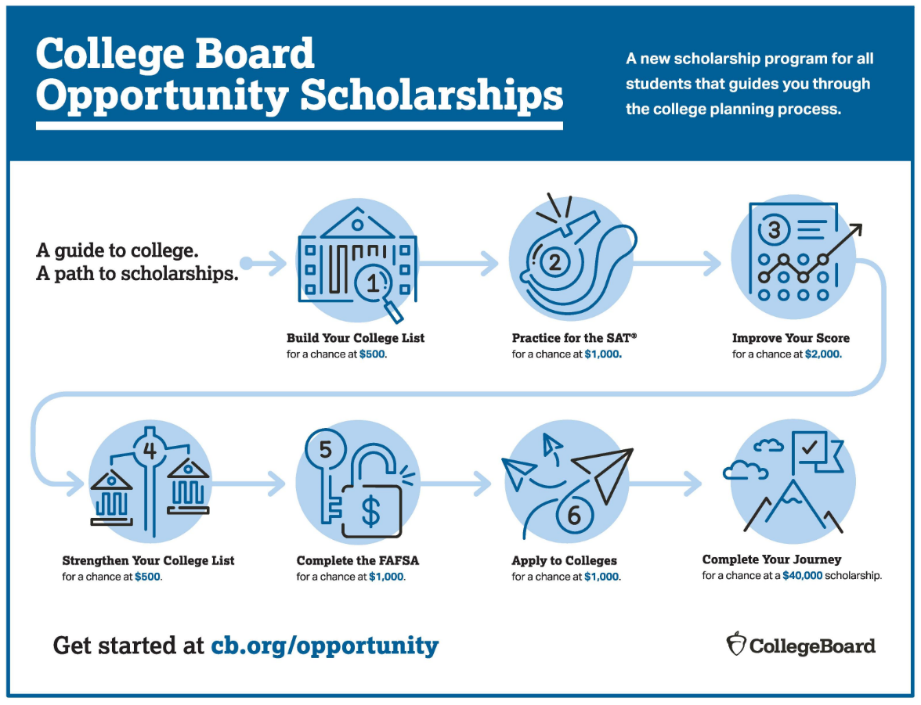
Scholarship. Concept with icons and signs.
Are you a high school junior looking for ways to alleviate the financial burden of college? Look no further! In this article, we will explore the world of scholarships specifically designed for high school juniors. From academic achievements to community involvement, there are numerous opportunities available to help you pursue your dreams of higher education. Whether you’re a straight-A student or a passionate artist, scholarships can provide the support you need to make your college dreams a reality. Join us as we delve into the various types of scholarships, provide answers to frequently asked questions, and offer helpful resources to guide you on your scholarship journey. Don’t miss out on this opportunity to learn about scholarships for high school juniors!
Why Scholarships for High School Juniors are Important
As a high school junior, you may already have your sights set on college, and scholarships can play a crucial role in making your dreams a reality. Here are several reasons why scholarships for high school juniors are important.

1.1 Reducing Financial Burden
Attending college can be a significant financial burden for many students and their families. Scholarships for high school juniors can help alleviate some of this financial pressure by providing funds to cover tuition, books, and other educational expenses. By reducing the need for student loans or out-of-pocket payments, scholarships can make higher education more accessible and affordable.
1.2 Early Start in College Funding
Securing scholarships as a high school junior allows you to start building your college funding early. Instead of waiting until the last minute to scramble for scholarships during your senior year, you can begin searching, applying, and accumulating awards well in advance. This early start gives you a head start in funding your college education and can contribute to a stronger financial foundation throughout your academic journey.
1.3 Recognition of Academic Merit
Scholarships for high school juniors often require a demonstration of academic excellence. By earning a scholarship, you receive recognition for your hard work and dedication to your studies. This recognition can boost your confidence and serve as a validation of your academic achievements. Furthermore, scholarships based on academic merit can open doors to additional educational opportunities and accolades.
1.4 Boosting College Applications
Including scholarships on your college applications can enhance your profile and make you a more competitive candidate. Admissions officers view scholarship recipients as students who have demonstrated exceptional qualities, such as academic excellence, leadership, community involvement, or talent in a specific area. This boost to your college application can help you stand out among other applicants and potentially increase your chances of admission to your desired college or university.
1.5 Expanding Opportunities for Higher Education
Scholarships for high school juniors create new avenues for pursuing higher education and exploring your academic interests. By receiving financial support, you have the opportunity to attend colleges or universities that may have otherwise been financially out of reach. Scholarships can also enable you to pursue specific majors, participate in research programs, or engage in study abroad opportunities, expanding your horizons and enriching your college experience.
2. Types of Scholarships for High School Juniors
There is a wide range of scholarships available specifically for high school juniors. Here are some common types of scholarships that you may consider:
2.1 Academic Scholarships
Academic scholarships are awarded based on a student’s performance in the classroom. These scholarships may consider factors such as GPA, class rank, standardized test scores, and academic achievements. Academic scholarships are often highly competitive and can provide substantial financial support for students who excel academically.
2.2 Merit-Based Scholarships
Similar to academic scholarships, merit-based scholarships recognize outstanding achievements in various areas, including academics, extracurricular activities, leadership, and community service. These scholarships evaluate a student’s overall merit and potential for success, beyond solely academics.
2.3 Essay-Based Scholarships
Essay-based scholarships require students to submit written essays on specific prompts or topics. These scholarships assess a student’s writing skills, critical thinking abilities, and ability to communicate effectively. Writing a compelling essay can increase your chances of securing scholarships and showcase your unique voice and perspective.
2.4 Leadership Scholarships
Leadership scholarships are awarded to students who have demonstrated exceptional leadership skills and qualities. These scholarships recognize individuals who have taken on leadership roles in their school, community organizations, or extracurricular activities. Participating in student government, leading clubs, or initiating projects can strengthen your eligibility for these scholarships.

2.5 Community Service Scholarships
Community service scholarships reward students who have made a significant impact on their communities through volunteer work and service projects. These scholarships value the importance of giving back to society and recognize individuals who have demonstrated a commitment to making a positive difference in the lives of others.
2.6 Athletic Scholarships
Athletic scholarships are specifically for students who have excelled in a particular sport. These scholarships are typically offered by colleges and universities and are based on athletic performance and potential. If you participate in high school sports and have a passion for a specific sport, athletic scholarships can provide financial assistance and opportunities to continue playing at the collegiate level.
2.7 Artistic Scholarships
Artistic scholarships are awarded to students who have exceptional talent in fields such as visual arts, performing arts, music, or creative writing. These scholarships recognize and support students with a passion for artistic expression, providing them with opportunities to further develop their skills and pursue their artistic aspirations.
2.8 STEM Scholarships
STEM (Science, Technology, Engineering, and Mathematics) scholarships are designed to encourage students’ interest and achievement in these fields. These scholarships support students pursuing majors or careers in STEM-related disciplines and recognize their potential to contribute to advancements in these areas. If you have a passion for STEM subjects, exploring STEM scholarships can open doors to exciting opportunities.
2.9 Financial Need-Based Scholarships
Financial need-based scholarships consider a student’s financial circumstances and provide assistance to those who require financial support to attend college. These scholarships take into account factors such as family income, household size, and other financial obligations. Applying for need-based scholarships can help alleviate the financial burden associated with higher education.
2.10 Minority Scholarships
Certain scholarships are specifically designated for students belonging to specific ethnic or minority groups. These scholarships aim to promote diversity and provide educational opportunities for historically underrepresented populations. If you identify as a minority student, researching and applying for minority scholarships can be a valuable avenue to explore.
3. Benefits of Applying for Scholarships as a High School Junior
Applying for scholarships as a high school junior offers numerous benefits that extend beyond financial assistance. Here are some key advantages of pursuing scholarships early in your high school journey:
3.1 Gaining Competitive Edge
By applying for scholarships as a high school junior, you gain a competitive edge over other students who may wait until their senior year. Colleges and scholarship committees are impressed by students who take the initiative to seek out and apply for scholarships early. This demonstrates your proactive approach, responsibility, and commitment to your education.
3.2 Improving Writing and Communication Skills
Many scholarships require written essays or personal statements as part of the application process. Applying for scholarships provides an excellent opportunity to enhance your writing and communication skills. By consistently practicing and refining these skills, you can become a more effective communicator and articulate your thoughts and ideas more clearly.
3.3 Developing Organizational and Time Management Skills
Applying for scholarships involves managing deadlines, gathering documents, and staying organized throughout the application process. By starting early and navigating the application process, you can develop valuable organizational and time management skills that will benefit you in college and beyond.

3.4 Exploring Personal Interests and Passions
Scholarships often require applicants to illustrate their involvement in extracurricular activities, community service, or personal interests. Through scholarship applications, you have the opportunity to reflect on your passions and explore how you have pursued them during high school. This self-reflection can deepen your understanding of your interests and potentially shape your future academic and career choices.
3.5 Strengthening College Applications
Applying for scholarships and earning awards can strengthen your college applications. Scholarship recipients are seen as motivated, accomplished individuals who have excelled in various areas of their lives. Including scholarships on your college applications can highlight your commitment, dedication, and unique qualities, making you a more attractive candidate to admissions officers.
3.6 Improving Financial Planning Skills
Applying for scholarships requires researching financial aid options, estimating costs, and understanding the financial implications of attending college. As a high school junior, engaging in this process helps you develop essential financial planning skills. Becoming familiar with the financial aspects of college can empower you to make informed decisions about your education and set realistic goals for funding your higher education.
4. Strategies to Maximize Scholarship Opportunities
To maximize your chances of securing scholarships as a high school junior, consider implementing the following strategies:
4.1 Start Early and Stay Organized
Starting early gives you ample time to research scholarships, gather documents, and prepare your applications. Create a timeline or planner to stay organized and keep track of application deadlines, requirements, and submission dates.
4.2 Research Available Scholarships
There is a vast array of scholarships available for high school juniors. Research various scholarship opportunities using online databases, scholarship search engines, and resources provided by your school or college counseling office. Explore different categories such as academic scholarships, merit-based scholarships, or scholarships specific to your intended major or field of interest.
4.3 Understand Eligibility Requirements
Carefully review each scholarship’s eligibility requirements before applying. Take note of the criteria, such as GPA, standardized test scores, extracurricular involvement, or community service, and determine if you meet the qualifications. Focusing on scholarships that align with your qualifications will increase your chances of success.
4.4 Develop Strong Essays and Application Materials
When applying for scholarships, pay special attention to your essays and application materials. Craft compelling essays that showcase your unique experiences, goals, and achievements. Use specific examples and demonstrate a strong connection to the scholarship’s mission or values.
4.5 Seek Recommendations and References
Many scholarships require letters of recommendation. Take the time to develop relationships with teachers, mentors, or community leaders who can speak to your character and accomplishments. Request recommendations well in advance, and provide your recommenders with specific information about the scholarship and your goals.
4.6 Meet Deadlines and Submit Complete Applications
Meeting deadlines is crucial when applying for scholarships. Note all submission deadlines and give yourself sufficient time to complete each application thoroughly. Ensure that you have included all required documents, such as transcripts, recommendation letters, and essays.

4.7 Apply for Local and Regional Scholarships
While national scholarships tend to receive more attention, local and regional scholarships can be less competitive and offer excellent opportunities. Consult your school’s guidance counselor, community organizations, or local businesses to explore scholarships available in your area.
4.8 Consider Unconventional Scholarship Opportunities
In addition to traditional scholarships, explore unconventional scholarship opportunities. Some organizations offer scholarships based on unique criteria, such as creating a video, designing a logo, or participating in a specific competition. Think creatively and consider your unique talents and interests when searching for scholarships.
4.9 Seek Assistance from School Counselors
Your school’s guidance counselors are valuable resources in your scholarship search journey. They can provide guidance, advice, and assist you in identifying scholarships that align with your interests and qualifications. Schedule meetings with your counselor to discuss your scholarship goals and seek their expertise.
4.10 Follow Up on Application Status
After submitting your scholarship applications, follow up on their status. Keep track of confirmation emails, logins, or application reference numbers to ensure that your application was received. If there is an option to check the status of your application, take advantage of it. Following up allows you to address any issues or missing documents promptly.
5. Resources for Finding Scholarships for High School Juniors
Finding scholarships as a high school junior can feel overwhelming, but utilizing the right resources can simplify the process. Consider these resources to aid your scholarship search:
5.1 High School Counselors
Your high school counselor can provide guidance and support throughout your scholarship search. They are knowledgeable about local, regional, and national scholarships and can help you navigate the application process.
5.2 Online Scholarship Databases
Online scholarship databases like Fastweb, Scholarships.com, and College Board’s Scholarship Search offer comprehensive lists of scholarships. Customize your search criteria based on your qualifications and interests to find scholarships that are the best fit for you.
5.3 Professional Organizations
Many professional organizations offer scholarships for students interested in pursuing careers in their respective fields. Research professional organizations related to your intended major or future career to discover potential scholarship opportunities.
5.4 Local Businesses and Community Organizations
Local businesses, community organizations, and foundations often provide scholarships to support students in their community. Keep an eye out for announcements, inquire at local businesses, or check community organization websites for scholarship opportunities.
5.5 College and University Websites
Colleges and universities often have scholarship opportunities specifically for incoming students. Explore the financial aid and scholarship sections of college and university websites to learn about scholarships available to high school juniors.

5.6 State and Federal Agencies
State education agencies and federal government departments offer scholarships to students based on various criteria. Visit their websites or reach out to them directly to explore scholarship options.
5.7 Scholarship Search Engines
In addition to online scholarship databases, scholarship search engines such as Peterson’s Scholarship Search and Cappex can help streamline your search. These platforms allow you to filter scholarships based on your qualifications and preferences.
5.8 Nonprofit Foundations
Nonprofit foundations often provide scholarships to support students in pursuit of higher education. Research foundations in your area or those aligned with your interests to uncover potential scholarship opportunities.
5.9 Career and College Fairs
Attending career and college fairs can provide valuable networking opportunities and expose you to various scholarship providers. Check with your school or local organizations for upcoming fairs in your area.
5.10 Social Media and Online Platforms
Follow scholarship-related social media accounts, join online communities, and subscribe to newsletters that highlight scholarships. Social media platforms like Twitter, Instagram, and LinkedIn often share scholarship announcements and opportunities.
6. Frequently Asked Questions about Scholarships for High School Juniors
6.1 Can high school juniors receive scholarships for college?
Yes, high school juniors can receive scholarships for college. Many scholarships are open to high school juniors, and securing scholarships at this stage can provide a head start in college funding.
6.2 How can I improve my chances of winning a scholarship as a high school junior?
To increase your chances of winning a scholarship as a high school junior, start early, stay organized, and actively research available scholarships. Develop strong application materials, such as essays, recommendations, and resumes, and ensure you meet all eligibility requirements.
6.3 Should I only apply for scholarships relevant to my anticipated college major?
While applying for scholarships related to your intended major or field of interest can be beneficial, consider applying for a diverse range of scholarships. Exploring different scholarship opportunities can increase your chances of securing funding from various sources.
6.4 Are there scholarships exclusively available for high school juniors?
Yes, there are scholarships exclusively available for high school juniors. These scholarships aim to support students during their junior year and encourage early engagement in the scholarship application process.
6.5 How many scholarships should I apply for as a high school junior?
The number of scholarships you should apply for as a high school junior depends on your time commitment, eligibility, and personal goals. It is typically beneficial to apply for multiple scholarships to increase your chances of securing funding.
6.6 Can scholarships for high school juniors be used for vocational or technical schools?
Yes, scholarships for high school juniors can be used for vocational or technical schools. Scholarships may be applicable to various types of post-secondary education and are not limited only to traditional four-year colleges and universities.
6.7 Is financial need a requirement for all scholarships?
No, financial need is not a requirement for all scholarships. While some scholarships emphasize financial need, others are based on academic, extracurricular, or other criteria. Ensure you review the requirements of each scholarship to understand its specific criteria.
6.8 Can applying for scholarships as a high school junior negatively impact my future financial aid eligibility?
Applying for scholarships as a high school junior usually does not negatively impact your future financial aid eligibility. Scholarships are typically considered part of your financial aid package, and universities and colleges adjust your aid accordingly.
6.9 Can I apply for scholarships outside of my country as a high school junior?
Some scholarship opportunities are available to international students, including high school juniors. Research scholarships specifically open to students from your country or those accepting international applications.
6.10 How soon should I begin preparing for scholarships as a high school junior?
It is recommended to begin preparing for scholarships as soon as possible during your high school junior year. Starting early allows you ample time to research scholarships, gather application materials, and develop a strong application strategy.







